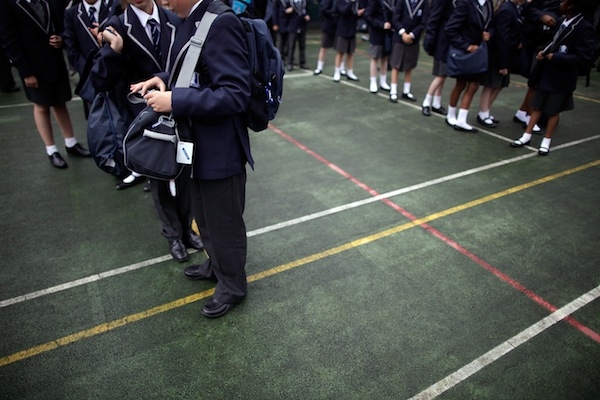Is the free schools project unnecessary and costly? If you take your news from the BBC, then you might be forgiven for answering ‘yes’: the Beeb’s reporting on the National Audit Office’s latest report on Michael Gove’s pet policy suggests that the whole thing has been an expensive vanity project. The report itself doesn’t seem to say quite the same thing, though: it argues that the Education department has ‘achieved clear progress on a policy priority’ and that ministers face a ‘rising capital cost trend’ in spite of much lower average construction costs than previous programmes (free schools often use existing buildings, while the department allows smaller space standards and reduced building specifications to create an average reduction in construction costs of 45%). It concludes that the success of the free schools programme depends ‘on how free schools perform in the future’, which is an acknowledgement that it is rather too early to either fete or condemn free schools. The report says:
‘Many new schools have been established quickly and at relatively low cost, and the department’s assessment of applications has improved. The department aims to open high quality, sustainable schools. The programme’s success and value for money depend on how free schools perform in the future. To date, the primary factor in decision-making has been opening schools at pace, rather than maximising value for money.’
The BBC and Labour’s Tristram Hunt are both very keen on the line that ‘application levels from areas of high or severe need have been mixed’. The NAO makes it quite clear that ‘addressing forecast local need is not a formal objective of the demand-led programme’, but what it doesn’t set out is that this is because the primary aim of free schools is to improve choice for parents. Labour’s pledge for parent-led academies in areas where there is a shortage of places sounds reasonable, until you realise that parents who are dissatisfied with the quality of existing schools with available places on offer will get no help from this programme. Besides, as Toby Young points out in a characteristically forceful post, 70 per cent of all free schools places are in areas of need anyway.
That said, there are points in this NAO report that are worth considering as this young programme develops:
– the assessment and monitoring process needs to improve: the NAO notes that the department is already introducing new ways of monitoring schools, but adds: ‘As the programme grows, more systematic data analysis will be needed to identify and manage emerging risks’. This was brought home by the failure of the Al-Madinah school in Derby, which was the inevitable first free school gone bad.
– the department could make better use of good practice in free schools. This bit of the NAO report is essentially a complaint that the department could be using free schools as a larger well from which to draw examples of good practice and evidence on what works in education, but it currently isn’t. It says:
‘The department has not made full use of a growing evidence base to enhance its programme management. The programme’s increasing scale provides more information on how free schools are operating in practice. We found that schools are using some freedoms available to them and are developing different pupil characteristics from neighbouring schools. The department does not routinely capture data on schools’ use of freedoms or the pattern of local demand. It has yet to fully consider which factors have most impact on school performance, for example, occupancy trends or the departure of head teachers.’
A great deal of this report addresses the issues that arise from the maturing of the free schools programme, which is important. And with each issue, there is an opportunity for the government to either remain faithful to the principles of that programme, or undermine it in little ways. We already know that Labour’s plans for ‘parent-led academies’, while sounding like a rebranding of a popular programme, are really an attempt to neuter free schools, while the Lib Dems want to introduce the very local authority oversight that free schools relish freedom from at the moment. There are many political threats to the free schools programme, but this report itself isn’t one of them.







Comments